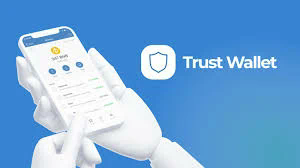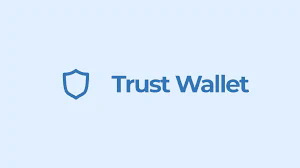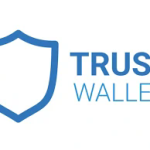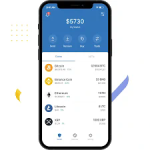# An In-Depth Exploration of Trust Wallet: The Ultimate Guide to Decentralized Finance
## Introduction to Trust Wallet
Trust Wallet is a multi-cryptocurrency wallet that enables users to store and manage a wide array of cryptocurrencies in a secure and user-friendly environment. Acquired by Binance in 2018, it has rapidly become one of the most popular decentralized wallets available. This article delves deep into the various features, functionalities, and underlying technology of Trust Wallet, while also comparing it with other wallets, addressing its security measures, and exploring its role in the burgeoning world of decentralized finance (DeFi).
## History and Development
Trust Wallet was founded in 2017 by Viktor Radchenko as a mobile wallet solution for Ethereum and ERC-20 tokens. It was designed to enable users to have full control of their private keys, ensuring enhanced security and ownership over their digital assets. The acquisition by Binance allowed for significant development and integration of features that cater to a wider audience and a more extensive list of cryptocurrencies.
## Features of Trust Wallet
### User-Friendly Interface
One of the primary reasons for Trust Wallet’s popularity is its intuitive user interface. Designed for both beginners and advanced users, the app facilitates easy navigation and rapid transactions. Its dashboard provides a straightforward overview of all assets, transaction history, and integrated DApp (Decentralized Application) browser, making it easy for users to interact with various decentralized platforms.
### Multi-Currency Support
Trust Wallet supports an extensive range of cryptocurrencies beyond just Bitcoin and Ethereum. Users can store thousands of digital assets, including ERC-20, BEP-2, and BEP-20 tokens. This multi-currency support enables users to manage their diverse portfolios from a single app, eliminating the need to switch between different wallet applications.
### Decentralized Application Browser
In an era where decentralized apps are gaining traction, Trust Wallet features a built-in DApp browser that allows users to access various decentralized exchanges, games, and other blockchain-based applications directly from the wallet. This seamless integration of DApps enriches the user experience and promotes engagement with the decentralized ecosystem.

### Staking Capabilities
Trust Wallet provides users with staking options for various cryptocurrencies, enabling them to earn passive income on their holdings. By participating in staking, users can earn additional tokens by helping to secure the network and validate transactions. Trust Wallet supports staking for major cryptocurrencies like Tezos, Tron, and Cosmos, among others.
### Non-Fungible Tokens (NFTs) Support
As the popularity of NFTs has surged, Trust Wallet has adapted by allowing users to manage their NFT collections. The app provides a dedicated section for viewing and transferring NFTs, facilitating interaction with various NFT marketplaces. This capability positions Trust Wallet as a versatile player in the evolving landscape of digital collectibles.
## Trust Wallet Security Features
### Private Key Control
Trust Wallet’s architecture emphasizes user control over private keys. Unlike custodial wallets where third parties hold users’ keys, Trust Wallet stores private keys locally on the device. This feature ensures that users maintain complete ownership and control, minimizing the risk of hacks and theft.
### Biometric Authentication
To enhance security further, Trust Wallet supports biometric authentication features, including fingerprint and facial recognition. Users can opt to enable these features for added protection, ensuring that only authorized individuals can access their wallets.
### Backup and Recovery Options
Trust Wallet offers a seed phrase backup mechanism that allows users to restore their wallets in case of device loss or theft. It’s critical for users to securely store their seed phrase offline, as anyone with access to it can regenerate the wallet and access the funds.
## Trust Wallet vs. Other Wallets
### Comparison with Hardware Wallets
While hardware wallets like Ledger and Trezor provide superior security by keeping private keys offline, they often come with a higher cost and a more complex setup process. Trust Wallet, in comparison, offers a convenient mobile solution suitable for everyday transactions, albeit with a slightly increased risk due to its connection to the internet.
### Comparison with Other Software Wallets
In the landscape of software wallets, Trust Wallet competes with popular applications like MetaMask, MyEtherWallet, and Exodus. Trust Wallet stands out due to its integrated DApp browser, broader multi-currency support, and unique features like staking and NFT management. Each wallet has its own strengths, catering to different user needs and preferences.
## The Role of Trust Wallet in Decentralized Finance
### Access to DeFi Projects
DeFi has emerged as one of the most transformative sectors within the cryptocurrency space. Trust Wallet plays a significant role in facilitating access to various DeFi projects, including decentralized exchanges (DEXs) like Uniswap, PancakeSwap, and lending platforms like Compound and Aave. By using Trust Wallet, users can effortlessly interact with these protocols, providing liquidity, swapping tokens, and earning yield.
### Security and Autonomy in DeFi Transactions
In the DeFi realm, securing digital assets is paramount. Trust Wallet’s emphasis on private key control aligns with the decentralized ethos of these projects, allowing users to engage in DeFi activities without relying on third-party custodians. This level of autonomy empowers users to take charge of their financial assets and decisions.
### Integration with Binance Smart Chain
Following Binance’s acquisition of Trust Wallet, the wallet has been optimized for interactions with Binance Smart Chain (BSC). BSC has emerged as a leading platform for DeFi projects, and Trust Wallet users can easily navigate and invest in various BSC-based tokens and projects, leveraging lower fees and faster transaction times.
## Trust Wallet Community and Ecosystem
### Active Community Support
Trust Wallet boasts a vibrant community of users, developers, and enthusiasts. Various channels, including social media and forums, provide platforms for users to discuss features, report issues, and share tips. This active community support contributes to the wallet’s continuous improvement and development.

### Regular Updates and Feature Enhancements
Frequent updates ensure that Trust Wallet remains competitive and up-to-date with industry standards. The development team actively solicits feedback from the community, incorporating user suggestions to enhance features and functionality.
### Educational Resources
Trust Wallet’s website and social media channels provide a wealth of educational resources, including guides, tutorials, and FAQs. These resources facilitate the onboarding of new users and help existing users maximize the wallet’s potential, reinforcing its role as a tool for empowerment in the blockchain space.
## Conclusion
Trust Wallet encapsulates a blend of user-friendliness, robust functionality, and strong security measures, making it a top choice for cryptocurrency enthusiasts. By supporting a wide array of digital assets and offering unique features like staking and NFT management, Trust Wallet caters to diverse user needs in an ever-evolving industry. Its integration with the DeFi landscape enhances its appeal, allowing users to take full advantage of the opportunities presented by decentralized finance. As the cryptocurrency world continues to grow, Trust Wallet remains positioned at the forefront, embodying the ideals of decentralization, security, and community engagement. Whether you’re a novice or an experienced investor, Trust Wallet provides the tools necessary to confidently navigate and thrive in the cryptocurrency universe.


